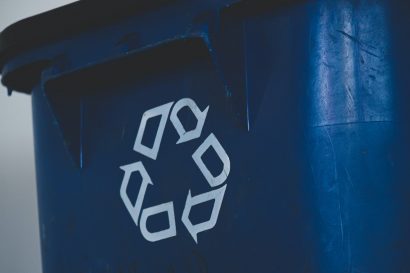AG INSIGHT | 19/06/2018
No Time to Waste: 6 interventions to make the UK a world leader in resource efficiency

Victoria Fleming-Williams, Policy Manager at the Aldersgate Group, reviews the Group’s recently launched briefing on why a strong Resources and Waste Strategy is crucial to delivering both economic and environmental gains
Today the Aldersgate Group has published a policy paper setting out our priorities for Defra’s Resources and Waste Strategy, which is expected this autumn.
The government’s decision to tackle this area is welcome, because there is plenty of work to be done in building better UK resource management. We still send 48 million tonnes of waste to landfill every year despite the fact that within that “waste” there is approximately £3.8bn worth of resources that are consequently lost to the UK economy, every year.
Meanwhile China used to take half the world’s paper and plastic waste for recycling, but now refuses 24 types of foreign waste. The UK still exports 3.5Mt of waste every year to other countries that use it to generate energy, but this could become uneconomic if additional border costs were put in place after Brexit. The UK resources and waste infrastructure urgently needs to take up the slack, particularly through better sorting facilities to ensure material streams are of sufficient quality. But new waste infrastructure can take four years to build, meaning this shortfall cannot be tackled overnight.
The potential benefits for the UK economy of greater resource efficiency are high. It can save businesses money, reduce reliance upon finite materials, provide insulation from materials’ price volatility, protect the natural environment from harm by the processes of material extraction and waste disposal and reduce the UK’s carbon emissions. There are more jobs associated with resource management processes, than there are in disposal and there are significant cost savings for businesses that can set up partnerships to use one another’s waste. Overall, improved resource efficiency could deliver a total net gain in Gross Value Added (GVA) of £76bn by 2030 to the UK economy.
The starting point must be the shift away from the linear take-make-dispose mentality, towards a presumption of resources being circulated within the economy multiple times or indefinitely. Secondly, the government’s upcoming Resources and Waste Strategy must prioritise areas where the most tangible impacts can be made. While the current public awareness around ocean plastics has opened up valuable political space for ambitious policymaking, plastic waste makes up just 0.5% of total UK waste and is entirely overshadowed by the far less visible, mineral and soil wastes that make up two-thirds of the UK’s waste.
To turn the economic and environmental potential of resource efficiency into reality, the Aldersgate Group’s briefing urges the government to:
Provide clear policy direction by explicitly linking resource efficiency commitments to existing targets and updating the RWS every five years; supporting the provision of skills and access to information about resource flows for businesses
Set standards to mandate greater resource efficiency in the manufacturing of products, ensuring that these are at least as stringent as those developed in the EU
Establish tax incentives (such as VAT rebates) to encourage businesses to develop resource efficient goods and services and to drive consumer demand
Support an effective regulatory regime for resources and waste through adequate funding for regulators and local authorities who can apply pragmatic regulations and tackle waste crime
Ensure the effective implementation of the Waste Hierarchy through development of metrics that better reflect the best environmental outcome for resources
Optimise producer responsibility to capture more businesses and more products, incentivise businesses to take greater responsibility for the environmental impact of their products and penalise those who fail to engage.
As Defra now drafts their Resources and Waste Strategy, we call on them to tackle UK resource management as a systemic challenge, engaging with government departments, businesses and other stakeholders to ensure interconnected issues are not tackled in isolation and risk unintended consequences.
Now is the moment for ambition from government, to set out the steps by which the ambitious targets that have already been announced in reducing plastic waste and doubling resource efficiency are supported by the policies needed to meet them. We look forward to continuing to work with Defra in the months ahead.


